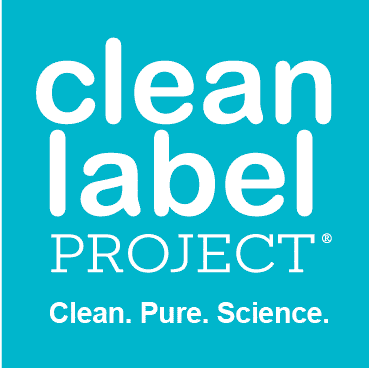The NATIONAL NON-PROFIT CLEAN LABEL PROJECT INTRODUCES NEW BABY FOOD STANDARD – FIRST 1,000 DAY PROMISE – FOCUSED ON TOXIC COMPOUNDS AND NUTRITION
The First 1,000 Day Promise standard is the first U.S. Standard inspired by European Commission regulations on ‘maximum levels for certain contaminants in foodstuffs’ namely vulnerable populations including infants, young children, pregnant women and lactating mothers
BROOMFIELD, Colorado February 28, 2022 –
Clean Label Project, the national non-profit and standards development and consumer advocacy organization, expands its lineup to include the new First 1,000 Day Promise standard. The First 1,000 Day Promise standard aims to expand the definition of baby food to include both traditional baby food and formula in addition to products targeting pregnant women and lactating mothers. Inspired by the European Commission regulation No. 1881/2006, the First 1,000 Day Promise standard sets maximum levels for certain contaminants in foodstuffs. In addition to maximum tolerance limits for industrial and environmental contaminants and toxins, such as heavy metals, pesticides, acrylamide and phthalates, the new standard also incorporates nutritional requirements including no added colors and sugar, and forthcoming maximum tolerances for forever chemicals, Per and Polyfluoroalkyl Substances (PFAS).
First 1,000 days refers to the first 1,000 days of a baby’s life – between a woman’s pregnancy and the child’s second birthday. It’s is a unique period of opportunity when the foundations for optimum health and development across the lifespan are established. The right nutrition and care during this 1,000-day window influences a child’s ability to grow, learn and prosper.
“The First 1000 Day standard shifts the narrative when it comes to ‘baby food’ safety. The standard is applicable to not just traditional baby foods but ALL foods and ingredients marketed towards pregnant women, infants, children, and lactating mothers,” said Dr. Stephanie Canale, family medicine physician and member of the Clean Label Project Technical Advisory Committee. “There is an inextricable link between the health of the mother and her child. Infants and children have unique nutritional needs and unique vulnerabilities. Parents, brands, and governments alike should take every possible precaution to assure the health and safety of this most vulnerable population. The best way to decrease exposure to any given contaminant is to strive for variety in the foods given to babies and toddlers.”
“While the congressional investigation and the FDA’s subsequent Closer to Zero efforts are laudable, families and the industry need pragmatic solutions now,” said Jaclyn Bowen MPH, MS, executive director of Clean Label Project, quality engineer, and public health practitioner. “Europe has had protections in place for over a decade aimed at minimizing vulnerable population exposure to these compounds with known links to reduced IQ, cancer, and reproductive harm. America’s families deserve these protections too.”
The First 1,000 Day Promise standard is a complement to Clean Label Project’s current suite of certification standards aimed at bringing truth and transparency to consumer product labeling. The First 1,000 Day Promise standard joins Clean Label Project’s flagship certification standard, Clean Label Project Purity Award, which uses evidence-based benchmarks to scientifically and quantitatively identify products superior to the status quo. Other Clean Label Project standards include Certified Pesticide Free, Transparency Project, and more.
The new standard also requires proof of food safety certification such as current good manufacturing practices (cGMP) or Global Food Safety Initiative (GFSI) benchmarked standard certification, internal quality control testing, and a robust supplier assurance program. This is in addition to Clean Label Project’s Consumer Chain of Custody Sampling and Testing program, a phrase coined by Clean Label Project to represent its efforts to perform random unannounced sampling and testing at retail and online to confirm ongoing compliance with Clean Label Project standards. The standard is currently in trial use and subject to revision following its use in the marketplace.
Clean Label Project’s efforts targeting baby food safety reform stem from its 2018 study in to the levels of lead, cadmium, and other industrial and environmental contaminants in America’s best-selling baby foods. Clean Label Project found that when it comes to lead in infant formula, 14% of America’s best-selling infant formulas exceeded the World Health Organization (WHO) tolerable daily limit for a 14-pound baby (median weight of a 4-month-old female baby) and 22% exceeded State of California’s Office of Environmental Health Hazard Assessment standards for lead and cadmium. The findings are from Clean Label Project’s review of more than 550 formulas, baby food jars/meals, cereals and snacks, which was published in the international multi-disciplinary peer-reviewed academic journal, Science of the Total Environment (STOTEN).
More information on Clean Label Project and the First 1000 Day standard can be found at CleanLabelProject.org
Contact: Info@CleanLabelProject.org
